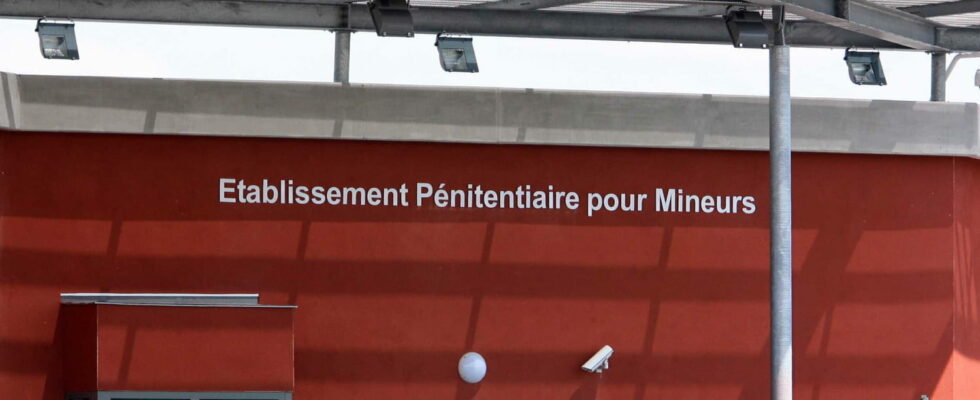The bill to tighten justice for minor offenders was adopted in the National Assembly this Thursday, February 13 and with it the end of the automatic attenuation of sentences for some of the minors.
The deputies decided and they decided to tighten judicial measures and responses to delinquent minors. The bill of the presidential camp aimed at “restoring the authority of justice towards minors delinquents and their parents” was adopted this Thursday, February 13. Above all, the strongest measures that had been deleted by the left -wing elected officials in the law committee last November were reinstated in the text. And among them: the end of the minority excuse for minors over the age of 16.
The justice of minors provides for several measures specific to the judgments of minor offenders according to the facts they committed and according to their age, most of them having the effect of alleviating sanctions. This is particularly the case with “the minority excuse”: this principle allows an attenuation of almost systematic sentence for minors aged 13 to 17 years. This means that minor offenders are never condemned to the same penalties as those pronounced against an adult for the same offense. Few are the exceptions to this attenuation of sentence and they only concern the most serious crimes.
The adoption of the bill for macronist deputies radically changes the situation: now the attenuation of sentence will no longer be the rule, but the exception for all minor offenders aged 16 and over. The latter will therefore incur heavier penalties, perhaps comparable to those planned for major offenders and criminals, and will not be able to benefit from the minority excuse that on a case-by-case basis and only by reasoned decision of the judge.
On the other hand, the attenuation of sentence will remain the standard for minors under the age of 16. Note that for adolescents aged 13 to 16, justice makes possible the pronunciation of sentences with attenuation of responsibility, placement under judicial supervision and pre -trial detention. The same measures are also provided for minors 16 years old with, in addition, household assignment with electronic surveillance.
“We cannot apply to minors the same rules as to adults”
The minority excuse has become a principle of French justice thanks to an order of 1945 believing that a minor capable of discernment must be less severe than an adult for the same fact. The measure has even been integrated into the Code of Criminal Justice of Minors in 2021. But the presidential camp, the right and the extreme right campaign for a hardening of this measure in recent years. These political forces judge the attenuations of sentence and other judicial derogations for minor offenders, such as educational measures, insufficiently dissuasive. “We must assume short prison sentences, one or two weeks, from the first serious crime. This is what is educational,” said the Minister of the Interior and member of the Républicains party, Bruno Retailleau, on France Inter February 12.
An opinion that does not share the majority of unions of magistrates opposed to the abolition of the minority excuse. “We cannot apply to minors the same rules as to adults,” cut Me Elisabeth Audouard, lawyer and co-host of the Minors Commission within the France’s Syndicate of Marseille to the site New publicationsFebruary 12.
She is joined by Justine Régnier, children’s judge in Lille and regional delegate of the magistracy union in the North, who entrusted the same day to France Inter Not having “at all the feeling of judging adults”: “There is a great disparity in the minors that one judges between those who are 13 years old and those who are soon 18 years old. In all cases, we see That they are minors in danger, that should be helped, and certainly not responsible adults, inserted, who would be fully aware of the entire actions. “
A hardening of ineffective measures?
Other unions in the Youth Judicial Protection Sector (PJJ) deplore a new hardening of measures that will not decrease minors’ delinquency, or solve the problems linked to it. “All the laws that have tried to shape repressive justice did nothing. This is proof that coercive justice shows its limits among minors,” analyzed Alexia Peyre, departmental co-secretary of SNPES-PJJ-FSU Bouches-du-Rhône. “Released adolescents need support. For us, a teenager is not an adult. A teenager needs maturity to understand the act he has committed, he also needs understanding and empathy towards his victims, “she adds to New publications Supporting educational measures more than the idea of pronouncing heavier penalties.
